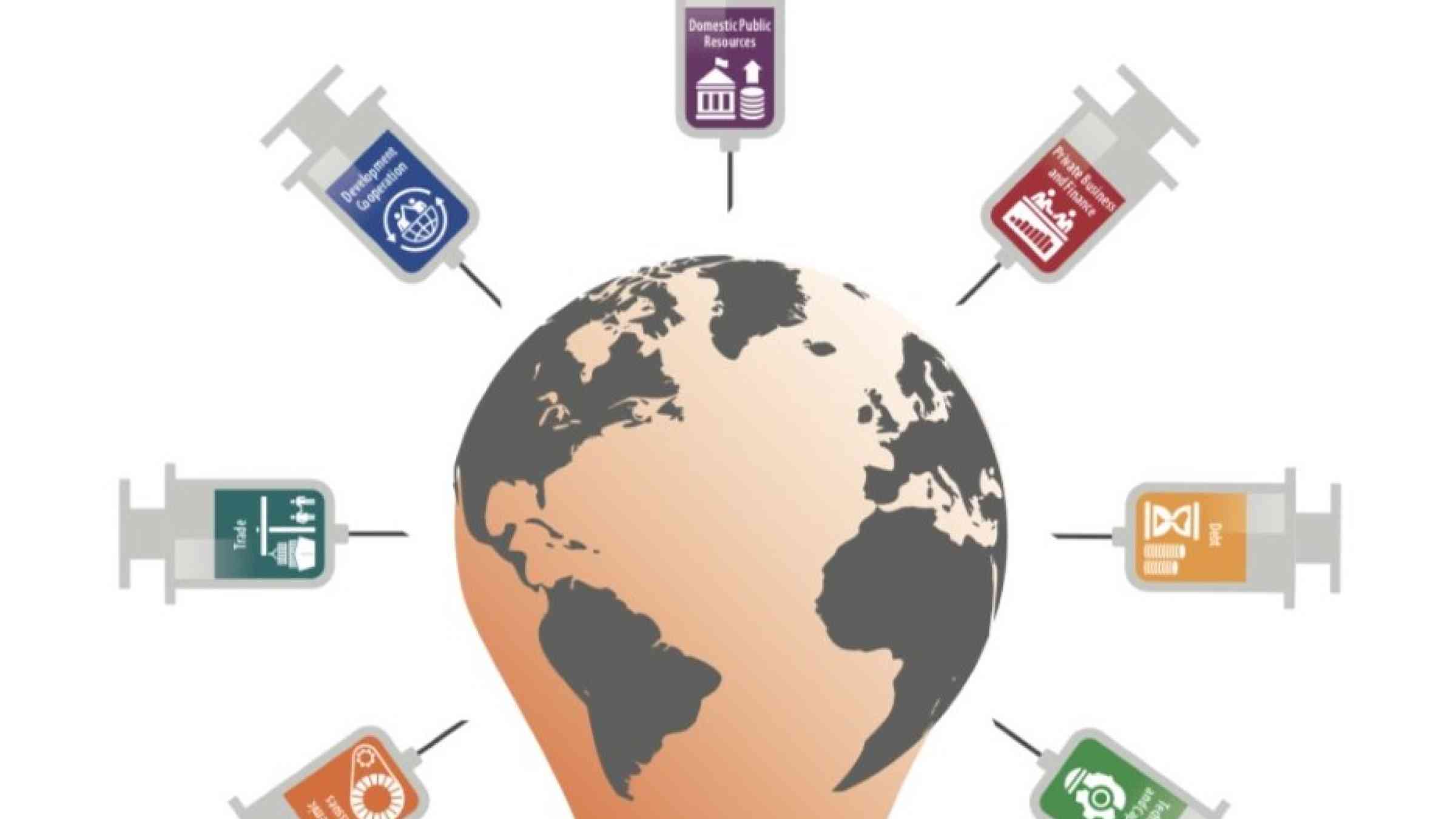Please help us improve PreventionWeb by taking this brief survey. Your input will allow us to better serve the needs of the DRR community.
Governments call for more public and private investment in disaster prevention and risk reduction

On 15 April, Member States gathered virtually to adopt the Outcome Document of the 2021 Economic and Social Council (ECOSOC) Forum on Financing for Development. This year’s outcome document provides indispensable intergovernmental policy guidance to countries on financing for disaster risk reduction and risk-informed investing.
For the first time at the ECOSOC Forum on Financing for Development, Governments recognise the systemic nature of risk and the need to strengthen the understanding of risk in economic and financial planning across all sectors and at all levels. There is a clear call to redress the balance from investing in response towards investing in prevention and risk reduction. Risk-sensitive public investment planning; the consideration of risk in land use planning; risk-sharing mechanisms that create an enabling environment for public-private partnerships; and diagnostics for infrastructure investments that include resilience and climate change adaptation are some of the policy options identified to accelerate financing for disaster risk reduction.
To support these efforts, national and regional development banks and international financial institutions are invited to integrate disaster risk reduction and resilience into COVID-19 economic recovery strategies. The outcome document also breaks new ground in recognizing the need to strengthen the resilience of the financial system through systematically integrating climate, environmental and disaster risks into global risk monitoring to inform future decision making.
Application of this intergovernmental policy guidance at national level will undoubtedly bring significant benefit to the implementation of national and disaster risk reduction strategies. It can also support coherence between financing for disaster risk reduction and climate change adaptation and ensure that the financing for the Sustainable Development Goals and COVID-19 socioeconomic recovery strategies build resilience and reduce the risk of future disasters.
Deliberations at the Forum, which ran from 12 to 15 April, were guided by the 2021 Financing for Sustainable Development Report. This year’s report includes a dedicated chapter that provides guidance to ministries of finance and planning to integrate disaster risk reduction into their policy decisions. During the forum, UNDRR, in partnership with UNDESA and the Co-Chairs of the Group of Friends for Disaster Risk Reduction, organized a side event titled “Financing for Disaster Risk Reduction and a Risk-Informed Approach to Investing Across the SDGs”. The event brought together a variety of development finance practitioners from government and the private sector to discuss the comprehensive approach needed to finance disaster risk reduction and capitalize on public sector policy-setting and private sector innovation.
In her opening remarks, Ms. Mami Mizutori, Special Representative of the Secretary-General for Disaster Risk Reduction, stated that “the current approach to funding disaster risk reduction is not keeping pace with the exponential rise of disaster risk” and called for “a paradigm shift in political attitudes towards financing for disaster risk reduction especially in places that are largely unprotected from the ravages of the climate emergency and the threat of biological hazards”. Mr. Shaun Tarbuk, Chief Executive of the International Cooperative and Mutual Insurance Federation, announced an upcoming report with UNDRR titled “From protection to prevention: the role of cooperative and mutual insurance in disaster risk reduction”.
Explore further
Also featured on
Please note: Content is displayed as last posted by a PreventionWeb community member or editor. The views expressed therein are not necessarily those of UNDRR, PreventionWeb, or its sponsors. See our terms of use
Is this page useful?
Yes No Report an issue on this pageThank you. If you have 2 minutes, we would benefit from additional feedback (link opens in a new window).